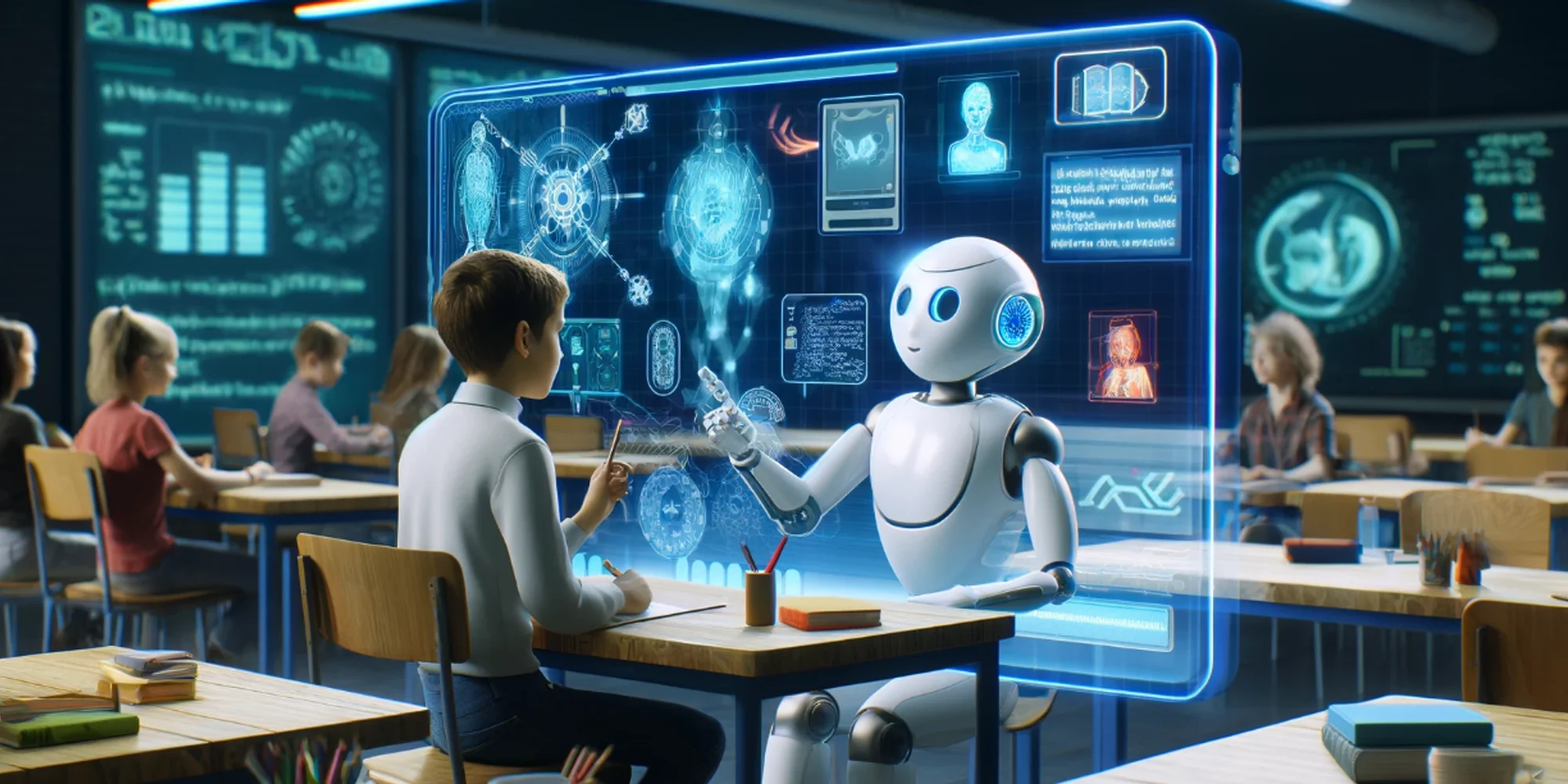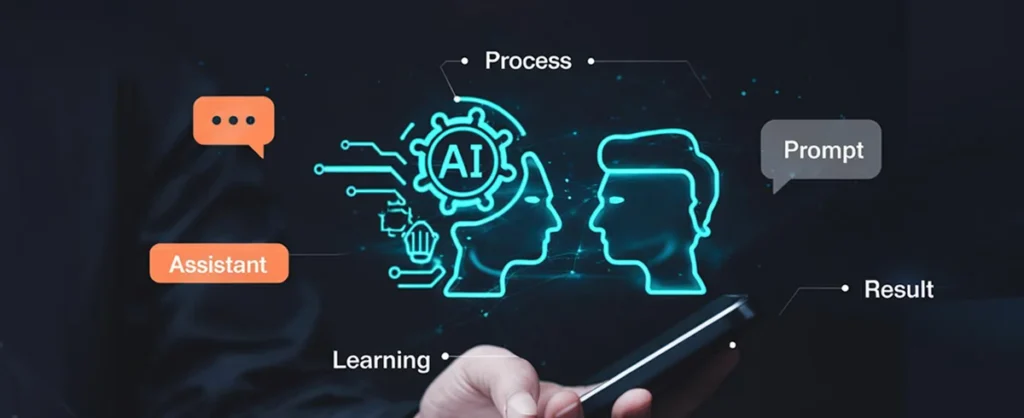Necessary Always Active
Necessary cookies are required to enable the basic features of this site, such as providing secure log-in or adjusting your consent preferences. These cookies do not store any personally identifiable data.
|
||||||
|
||||||
|
||||||
|

Artificial Intelligence systems are transforming the way business approaches learning and development in the workplace. AI-powered tutors have changed from science fiction into usable technology which provides specific continuous instruction for worldwide teams. The breakthrough of modern learning systems indicates whether human trainers will fade from existence.
AI tutors have become an increasingly popular workforce development solution because they offer real-time performance monitoring and automatic feedback responses along with personalized educational progressions. This uncontrolled speed of adoption forces crucial examination of how much AI technology can truly substitute teaching roles performed by humans. What are the main benefits and weaknesses of embracing AI teaching systems in B2B corporate education approaches?
This blog talks about the increasing presence of AI tutors throughout corporate training and their advantages while explaining their limitations and determining their position in relation to human instructors.
Artificial Intelligence tutors now transform how people learn through educational institutions and corporate organizations. From autopiloted quiz features and recommendation systems to intelligent learning platforms that deliver individualized content to students.
Early AI systems limited themselves to perform three main functions which included topic recommendations, assessment grading and scripted response generation. The combination of machine learning and natural language processing (NLP) has advanced the systems to higher capabilities.

AI tutors track distinctive learning behaviors of students to generate customized educational content while furnishing immediate feedback which improves their educational experience and comprehension. The learning platforms like Coursera and Duolingo display AI capability through automated lesson challenges for improved training along with continuous performance tracking.
Technology has evolved from traditional static e-learning into dynamic AI-based learning systems which allow users to advance according to their own pace. Organizations benefit from these adaptable and scalable training programs for global teams because of their 24/7 system availability.
The growing acceptance of AI tutors has started a debate regarding their usage while human instructors continue to teach.
The increasing popularity of AI tutors in B2B learning is fueled by a fundamental transformation in how organizations address workforce development. With changing industries and shifting skill requirements faster than ever before, businesses require learning solutions that can match this speed. AI tutors are stepping up as an answer to that need.
Today’s businesses no longer exist at a single point or among a single set of learners. The teams are scattered with remote working, the jobs are varied, and the learning requirements are constantly changing. According to Grandview Research, the AI tutors’ market is projected to grow at a CAGR of 30.5% from 2025 to 2030, reaching a valuation of $7.9 billion.
Classic one-size-fits-all courses tend to falter in being able to provide the kind of agility required in such settings. This has encouraged companies to try out AI-powered models for adaptive learning. Secondly, the focus on continuous learning and reskilling has been increasing. With today’s competitive market, organizations cannot afford to view training as a one-and-done affair. AI tutors are facilitating this transition by making continuous learning possible that matches individual development and business goals.

AI tutors are increasingly becoming an in corporate learning strategies, particularly for companies seeking agile and future-capable teams. Their potential to merge technology with individualized learning is revolutionizing conventional models of training and providing scalable solutions for international organizations. Below are some of the advantages an AI tutor offer to B2B learning:
While AI tutors offer several advantages, they are not without limitations. It’s important for businesses to understand these challenges before fully integrating AI-driven learning into their training programs. Below are some key limitations to consider:
1. Lack of Human Empathy: AI teachers are unable to understand emotions or provide emotional guidance. This restricts them from dealing with sensitive subjects or fine interactions.
2. Limited Critical Thinking Support: AI platforms are not capable of teaching soft skills or encouraging innovative problems. These skills still require human mannerisms and contexts from the real world.
3. Dependence on Data Quality: The effectiveness of AI tutors relies majorly on accurate and updated data. Inaccurate or not updated data can lead to ineffective training and wrong recommendations.
4.Technical Limitations: AI tools can face glitches, system errors or chronic algorithms. These issues can disrupt learning experience and learners can reduce engagement.
5. High early Investment: AI systems that are executed often require significant advance costs. This can be a challenge for small businesses or organizations with limited budgets.
Privacy and Data Security Risks: AI tutors collect and analyze large amounts of learner data. Without strong security measures, this could expose sensitive information to potential breaches.
These growing capabilities of AI tutors have started a debate on whether they can eventually replace human teachers. While AI excels in providing individual content, tracking progress, and offering immediate feedback, it still lacks mentorship, emotional intelligence and the lack of human touch required for real-world problems. Teaching is not only about transferring knowledge, it involves understanding the feelings of learners, adapting to dynamic conversations and promoting critical thinking.
These are areas where human teachers play an irreplaceable role is all about complex themes, leadership skills, and creative thinking and often demands human guidance and experience. Instead of replacing teachers, AI tutors are more likely to complement them. It can be given the task of providing data-driven assistance, while teachers can focus on deep engagement and strategic learning objectives.
Sign up to receive our newsletter featuring the latest tech trends, in-depth articles, and exclusive insights. Stay ahead of the curve!